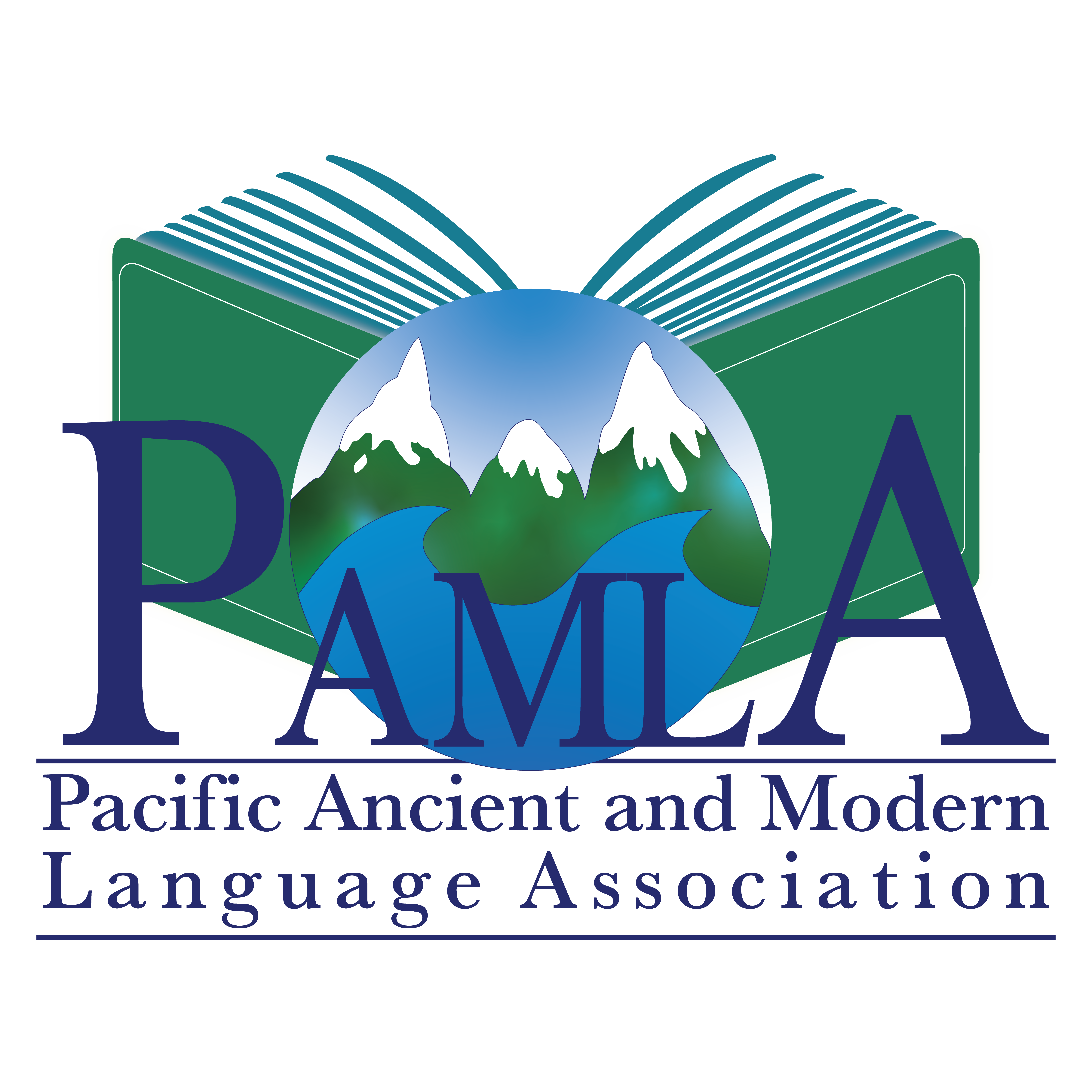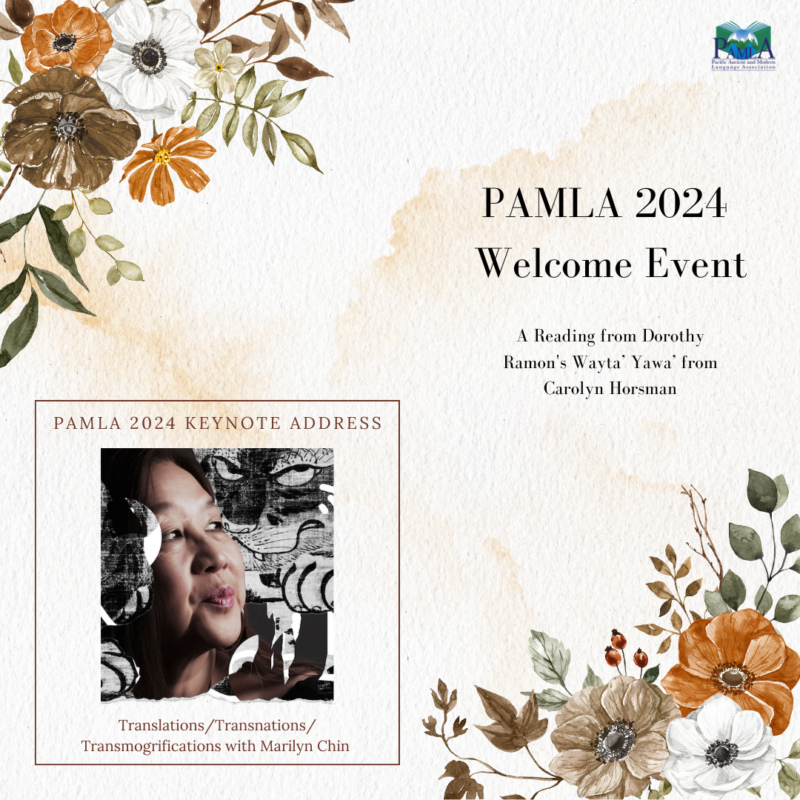Please join PAMLA President Juan Delgado, Carolyn Horsman and Marilyn Chin for the PAMLA Conference Welcome & Keynote Address (Thur., Nov. 7, 11:30 am to 12:50 pm in Crosby Ballroom B).
Carolyn Horsman, a board member of the Dorothy Ramon Learning Center (a non-profit dedicated to saving/sharing the native cultures of Southern California) will be welcome conference goers to the region. Then Marilyn Chin will deliver the Keynote Address, “Translations/Transnations/Transmogrifications: An Interactive Poetry Reading & Discussion,” including work from her new book Sage and from her best hits album…with a special focus on translation.
Carolyn Horsman serves on the board of the Dorothy Ramon Learning Center (DRLC), located in Banning, California. While fulfilling her responsibilities as Treasurer, she also contributes to the mission of DRLC: to save and share the indigenous native cultures of Southern California. Carolyn earned an Associate degree in Business Administration and a Bachelor of Science in Information Technology as she raised a family and worked. She considers herself very fortunate to have known and been a small part of the lives of people whom some would consider to be among the last to hold to traditional native beliefs and practices during a time of discrimination.
Marilyn Chin is an award-winning poet and author, professor emeritus of San Diego State University, and a self-professed “activist, subversive, radical, immigrant, feminist, transnational Buddhist neoclassical poet…and an inventor of a fusionist esthetics of bilingual and bicultural hybrid forms.” Chin was born in Hong Kong and raised in Portland, Oregon. Her works have become Asian American classics and are taught in classrooms internationally. Marilyn Chin’s books of poems include Sage, A Portrait of the Self as Nation, Hard Love Province, Rhapsody in Plain Yellow, Dwarf Bamboo, and The Phoenix Gone, the Terrace Empty. She also published a book of magical fiction, Revenge of the Mooncake Vixen. In addition to writing poetry and fiction, she has translated poems by the modern Chinese revolutionary poet Ai Qing and co-translated poems by the Japanese poet Gozo Yoshimasu.

